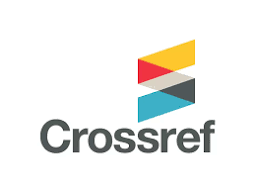Critical Need for Health Literacy and Policy Reforms for Reduction of Self-Medication in Pakistan
Abstract
Dear Editor,
The terminology self-medication (SM) refers to "utilization of medications treatment of self-diagnosed afflictions, symptoms or the periodic / persistent use of a prescription meds for chronic disease or symptoms". 1 It may involve the use of over-the-counter (OTC), prescription-only-meds (POM), or supportive and alternative meds (SAM) without first consulting a medical doctor. SM ways include repeating a previous physician prescription, ingesting unused drugs, employing home-based supplements and cures on the advice of relatives/friends or colleagues. 2 SM is a risky endeavor that leads to erroneous diagnoses, poor meds selection, dependence, abuse issues, and waste of healthcare resources. SM is a significant global problem that affects both wealthy and developing nations.1, 2 As per the findings, the prevalence rate of SM ranges from 32.5 percent to 81.5 percent worldwide.
The prevalence of SM and its continued impact on public health make it an important topic of discussion in Pakistan. Recent studies suggest that between 53% and 61.3% of Pakistan's population is affected by SM.3 93% of participants reported using SM to take analgesics, and 69% reported using SM to take antipyretics, and 52% used SM to take antibiotics .2,3 Additionally, the Pakistani population was found to make use of SAM and home-based treatments.4 A recent survey revealed that, on average in Pakistan, each community pharmacy there serves 5.5 people per day, of whom 7.9 receive drugs without a prescription.5 Increasing percentage of SM in Pakistan, may be attributable to a combination of reasons, including ready availability of medications, inadequate health education, and widespread drug advertising.3-5 Misdiagnosis, improper treatment, and additional health problems are all possible outcomes of SM approaches based on individual practitioners' prior experience with the same ailment.1 SM involvement is associated with polypharmacy, unwanted side effects, medication interactions, resistance development, and a heavier cost burden.6
Downloads
Published
Issue
Section
License
Copyright (c) 2023 Um-e-Habiba Alvi; Ijaz Ahmed, Husnain Ali Alvi, Abbas Ali Alvi

This work is licensed under a Creative Commons Attribution-NonCommercial 4.0 International License.
Readers may “Share-copy and redistribute the material in any medium or format” and “Adapt-remix, transform, and build upon the material”. The readers must give appropriate credit to the source of the material and indicate if changes were made to the material. Readers may not use the material for commercial purpose. The readers may not apply legal terms or technological measures that legally restrict others from doing anything the license permits.


